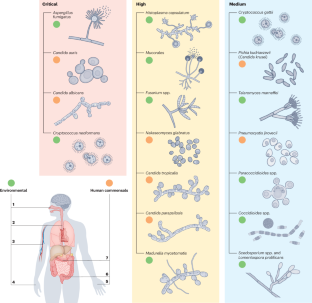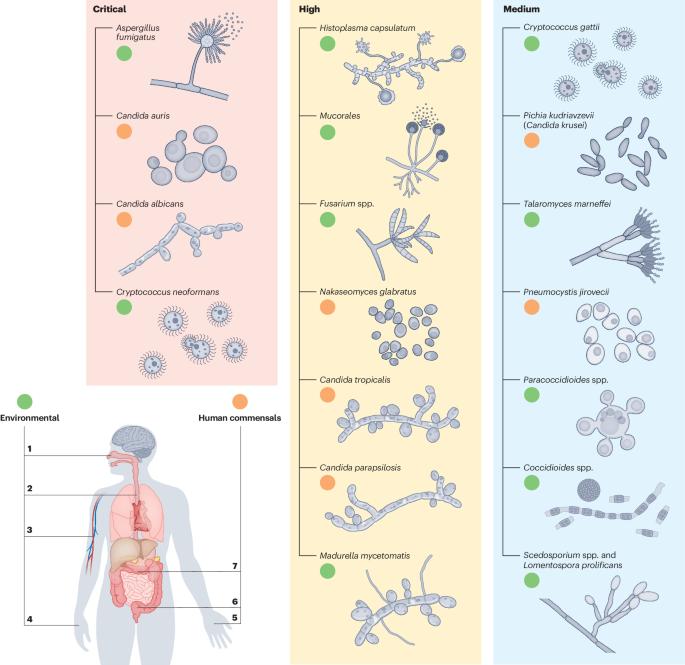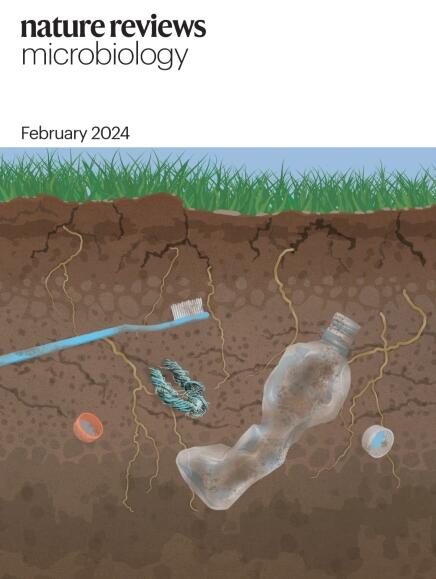The pathobiology of human fungal infections
IF 69.2
1区 生物学
Q1 MICROBIOLOGY
引用次数: 0
Abstract
Human fungal infections are a historically neglected area of disease research, yet they cause more than 1.5 million deaths every year. Our understanding of the pathophysiology of these infections has increased considerably over the past decade, through major insights into both the host and pathogen factors that contribute to the phenotype and severity of these diseases. Recent studies are revealing multiple mechanisms by which fungi modify and manipulate the host, escape immune surveillance and generate complex comorbidities. Although the emergence of fungal strains that are less susceptible to antifungal drugs or that rapidly evolve drug resistance is posing new threats, greater understanding of immune mechanisms and host susceptibility factors is beginning to offer novel immunotherapeutic options for the future. In this Review, we provide a broad and comprehensive overview of the pathobiology of human fungal infections, focusing specifically on pathogens that can cause invasive life-threatening infections, highlighting recent discoveries from the pathogen, host and clinical perspectives. We conclude by discussing key future challenges including antifungal drug resistance, the emergence of new pathogens and new developments in modern medicine that are promoting susceptibility to infection. In this Review, Brown et al. provide an overview of fungal pathobiology from the pathogen, host and clinical perspectives, focusing specifically on pathogens that can cause invasive life-threatening infections.


人类真菌感染的病理生物学
人类真菌感染是一个历来被忽视的疾病研究领域,但每年却造成 150 多万人死亡。在过去的十年中,我们对这些感染的病理生理学的了解有了很大的提高,对导致这些疾病的表型和严重程度的宿主和病原体因素都有了重要的认识。最近的研究揭示了真菌改变和操纵宿主、逃避免疫监视和产生复杂合并症的多种机制。虽然对抗真菌药物敏感性较低或耐药性迅速发展的真菌菌株的出现正在构成新的威胁,但对免疫机制和宿主易感因素的进一步了解正开始为未来提供新的免疫治疗方案。在这篇综述中,我们对人类真菌感染的病理生物学进行了广泛而全面的概述,尤其侧重于可导致危及生命的侵袭性感染的病原体,重点介绍了从病原体、宿主和临床角度的最新发现。最后,我们将讨论未来的主要挑战,包括抗真菌药物耐药性、新病原体的出现以及现代医学的新发展,这些都会增加感染的易感性。
本文章由计算机程序翻译,如有差异,请以英文原文为准。
求助全文
约1分钟内获得全文
求助全文
来源期刊

Nature Reviews Microbiology
生物-微生物学
CiteScore
74.00
自引率
0.50%
发文量
149
审稿时长
6-12 weeks
期刊介绍:
At Nature Reviews Microbiology, our goal is to become the leading source of reviews and commentaries for the scientific community we cater to. We are dedicated to publishing articles that are not only authoritative but also easily accessible, supplementing them with clear and concise figures, tables, and other visual aids. Our objective is to offer an unparalleled service to authors, referees, and readers, and we continuously strive to maximize the usefulness and impact of each article we publish. With a focus on Reviews, Perspectives, and Comments spanning the entire field of microbiology, our wide scope ensures that the work we feature reaches the widest possible audience.
 求助内容:
求助内容: 应助结果提醒方式:
应助结果提醒方式:


